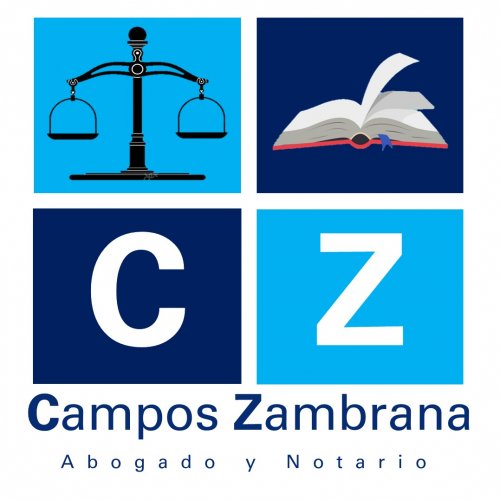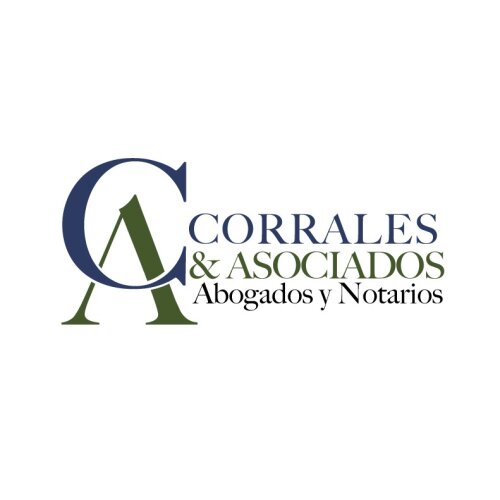Best Mortgage Lawyers in Nicaragua
Share your needs with us, get contacted by law firms.
Free. Takes 2 min.
Free Guide to Hiring a Real Estate Lawyer
Or refine your search by selecting a city:
List of the best lawyers in Nicaragua
About Mortgage Law in Nicaragua
Mortgage law in Nicaragua is an important aspect of property rights and real estate transactions. In Nicaragua, a mortgage is a legal mechanism through which property owners can pledge their real estate as collateral to secure a loan. This allows lenders to provide financing to borrowers for the purchase or improvement of real estate. The process is governed by a set of regulations and laws that ensure the rights of both borrowers and lenders are protected. Understanding these laws is crucial for anyone involved in real estate transactions in Nicaragua, whether as a buyer, seller, lender, or legal professional.
Why You May Need a Lawyer
Legal expertise is often required in the realm of mortgages for several reasons:
- Property Acquisition: Navigating the legal requirements for purchasing property can be complex. Ensuring that the paperwork is in order and that there are no legal impediments to the sale is crucial.
- Securing a Mortgage: Legal assistance may be required to evaluate and negotiate mortgage terms to ensure they are favorable and comply with local laws.
- Dispute Resolution: A lawyer can help resolve disputes between borrowers and lenders, including issues of foreclosure or default.
- Regulatory Compliance: Ensuring that all actions related to the mortgage comply with Nicaraguan laws and regulations is essential to avoid legal issues.
- Documentation: Lawyers help in drafting, reviewing, and executing necessary documents during the mortgage agreement process.
Local Laws Overview
The mortgage process in Nicaragua is influenced by several key legal principles and regulations:
- Property Ownership: Foreigners can own property, but it's essential to ensure clear and clean title documentation to avoid future disputes.
- Registration: All mortgages must be registered with the Public Registry to be enforceable against third parties. This process confirms the validity of the mortgage.
- Interest Rates: The terms of interest rates and fees must comply with local financial regulations, and they should be clearly outlined in the mortgage agreement.
- Foreclosure Process: In case of default, the foreclosure proceedings are handled through the judicial system, requiring adherence to legal protocols to avoid rights violations.
- Consumer Protection: Borrowers are protected by consumer rights laws that safeguard against unfair lending practices.
Frequently Asked Questions
What is a mortgage and how does it work in Nicaragua?
A mortgage in Nicaragua is a legal agreement where property is used as collateral to secure a loan. The borrower retains ownership but the lender has a claim on the property until the debt is paid off.
Can foreigners obtain a mortgage in Nicaragua?
Yes, foreigners can obtain mortgages, though they may need to meet specific requirements set by lenders, such as having legal residency or other guarantees.
What is the typical process for obtaining a mortgage in Nicaragua?
The process generally includes applying for the loan, getting property appraisals, negotiating terms, and signing a mortgage agreement before it's registered in the Public Registry.
Are there any restrictions on the amount I can borrow?
Borrowing limits are typically set by the lending institution based on the value of the property and the borrower's financial situation.
What happens if I default on my mortgage?
If you default, the lender has the right to initiate foreclosure proceedings to claim the property and recover the outstanding debt through a judicial process.
How are interest rates determined for mortgages in Nicaragua?
Interest rates are determined by the lender and are affected by factors like the central bank's policies, market conditions, and the borrower's creditworthiness.
What fees are involved in obtaining a mortgage?
Common fees include appraisal costs, legal fees, registration fees, and possibly a commission to the bank or financial institution.
Is mortgage insurance required?
While not always required, some lenders may insist on mortgage insurance to protect against defaults, especially for larger loan amounts.
How long does it typically take to process a mortgage?
The processing time can vary, but typically it may take several weeks to a few months, depending on the complexity of the transaction.
What should I do if I feel my rights as a borrower are being violated?
If you suspect violations, consulting with a legal expert equipped with knowledge of consumer protection laws and mortgage regulations is advisable.
Additional Resources
When seeking mortgage-related advice or assistance in Nicaragua, consider the following resources:
- Real Estate Lawyers: Consult with local real estate lawyers who specialize in Nicaraguan property law for legal assistance.
- Financial Advisers: Professionals who can offer insights into mortgage options and financial planning.
- Nicaraguan Public Registry: This government body handles property and mortgage registrations and can provide public records crucial for due diligence.
- Consumer Protection Agencies: Engage with agencies that protect the rights of consumers in loan and credit-related matters.
- Local Banks: Discuss mortgage options and obtain guidance on the borrowing process from local financial institutions.
Next Steps
If you are seeking legal assistance in mortgage matters in Nicaragua, consider taking the following steps:
- Consult a Lawyer: Engage with a legal professional who specializes in Nicaraguan mortgage law to understand your rights and obligations.
- Gather Documentation: Collect and organize all pertinent documentation related to the property and mortgage agreement.
- Evaluate Mortgage Options: Investigate different financial institutions and lenders to compare mortgage offerings and terms.
- Know Your Rights: Familiarize yourself with consumer protection laws and mortgage regulations in Nicaragua.
- Prepare for Legal Procedures: If legal action is necessary, ensure that you’re prepared to engage in potential judicial processes by understanding the steps involved.
Seeking professional guidance and doing thorough research are key steps that can help you navigate the complexities of mortgage transactions in Nicaragua effectively.
Lawzana helps you find the best lawyers and law firms in Nicaragua through a curated and pre-screened list of qualified legal professionals. Our platform offers rankings and detailed profiles of attorneys and law firms, allowing you to compare based on practice areas, including Mortgage, experience, and client feedback.
Each profile includes a description of the firm's areas of practice, client reviews, team members and partners, year of establishment, spoken languages, office locations, contact information, social media presence, and any published articles or resources. Most firms on our platform speak English and are experienced in both local and international legal matters.
Get a quote from top-rated law firms in Nicaragua — quickly, securely, and without unnecessary hassle.
Disclaimer:
The information provided on this page is for general informational purposes only and does not constitute legal advice. While we strive to ensure the accuracy and relevance of the content, legal information may change over time, and interpretations of the law can vary. You should always consult with a qualified legal professional for advice specific to your situation.
We disclaim all liability for actions taken or not taken based on the content of this page. If you believe any information is incorrect or outdated, please contact us, and we will review and update it where appropriate.
Browse mortgage law firms by city in Nicaragua
Refine your search by selecting a city.










